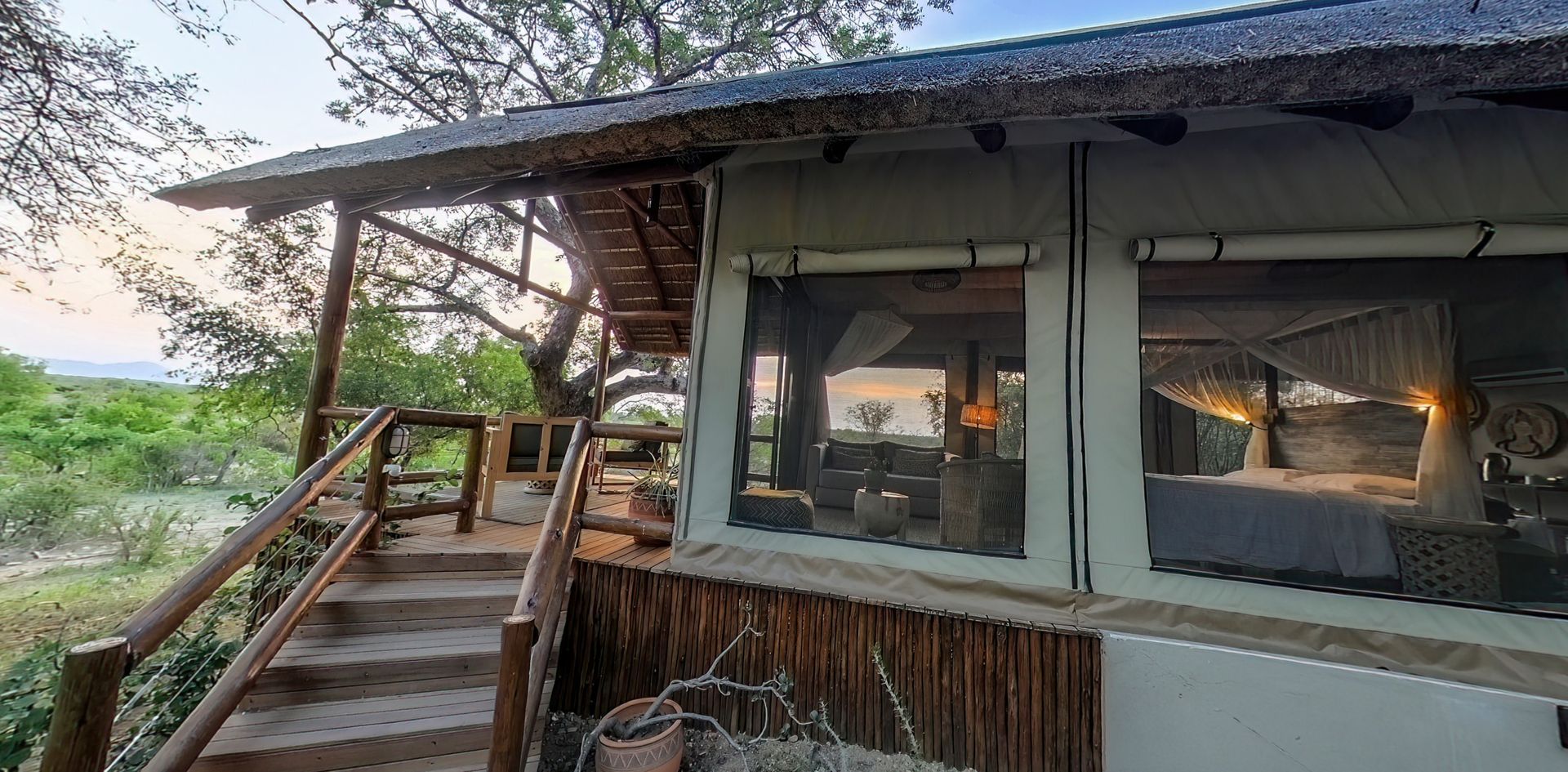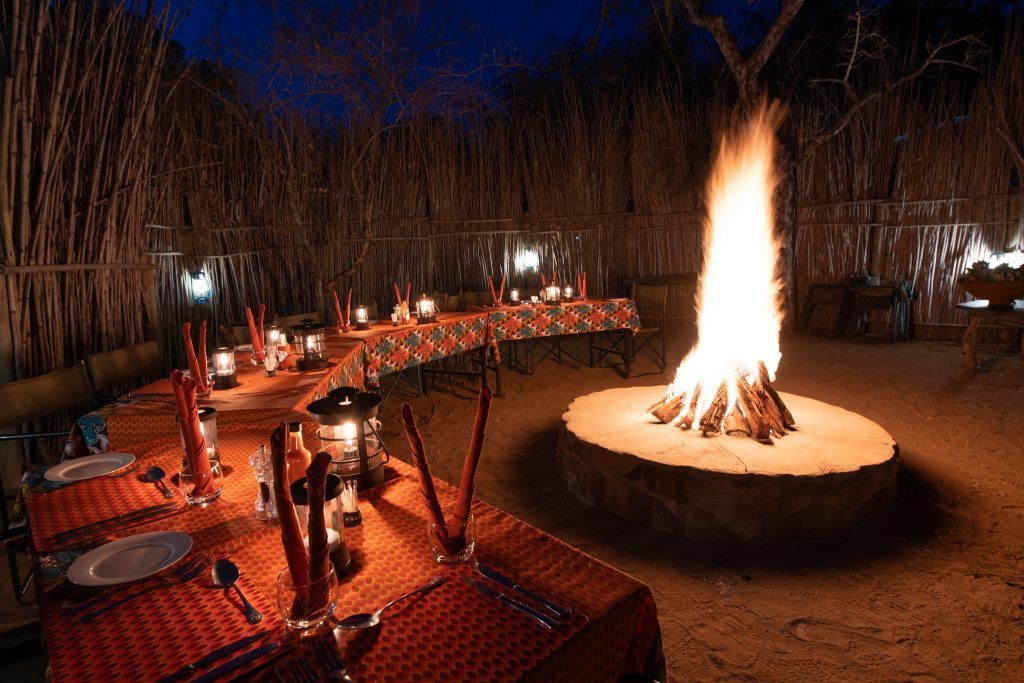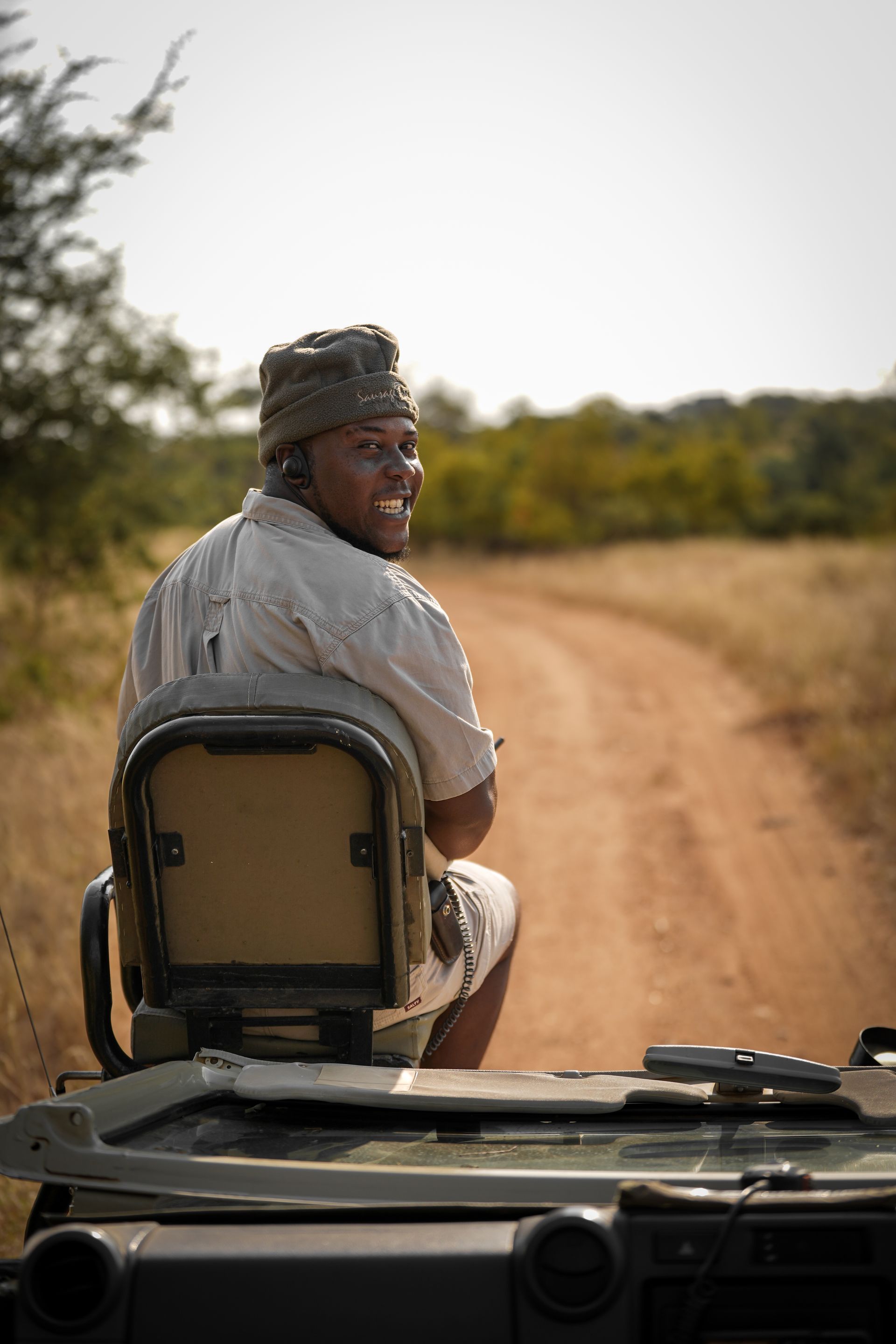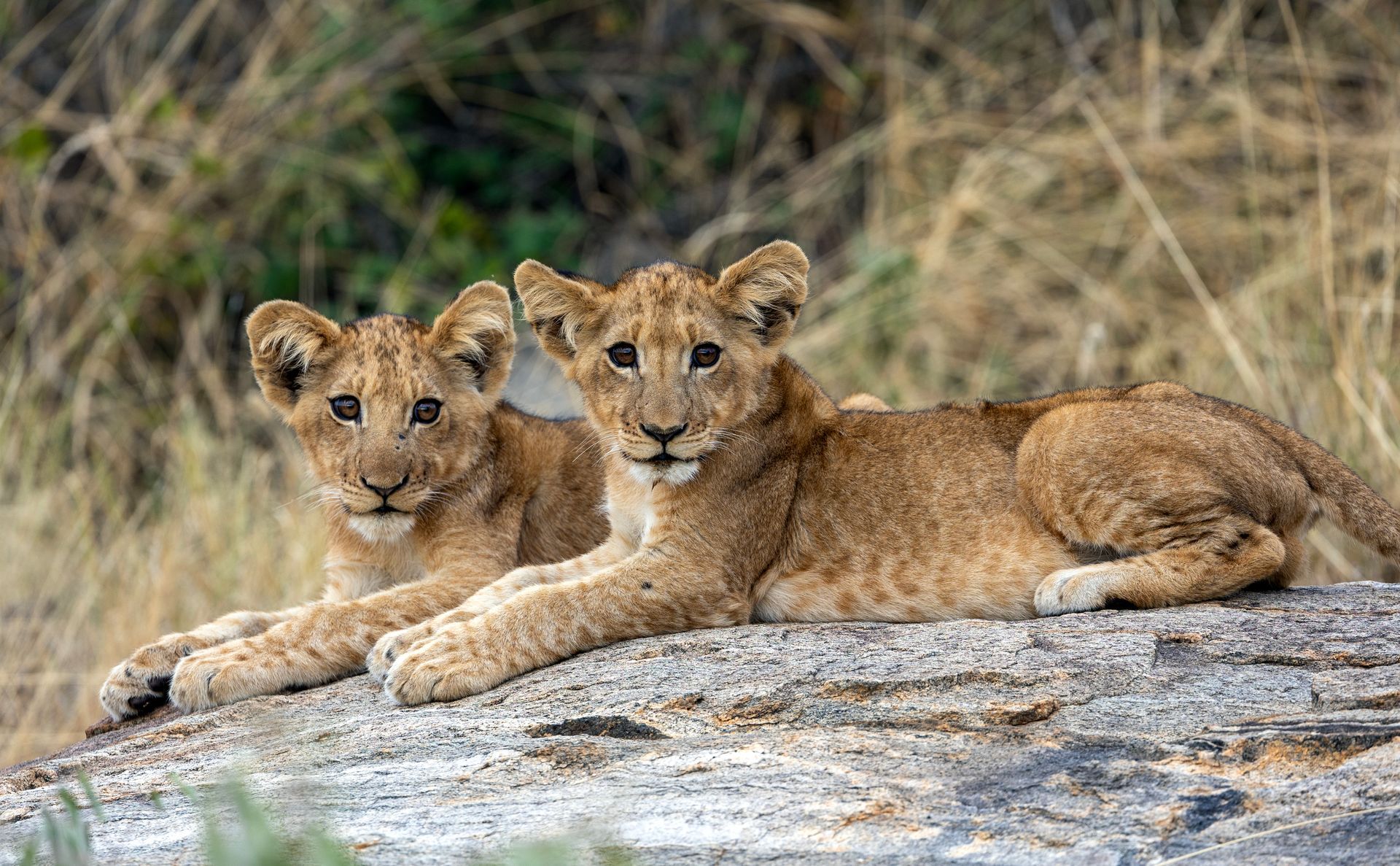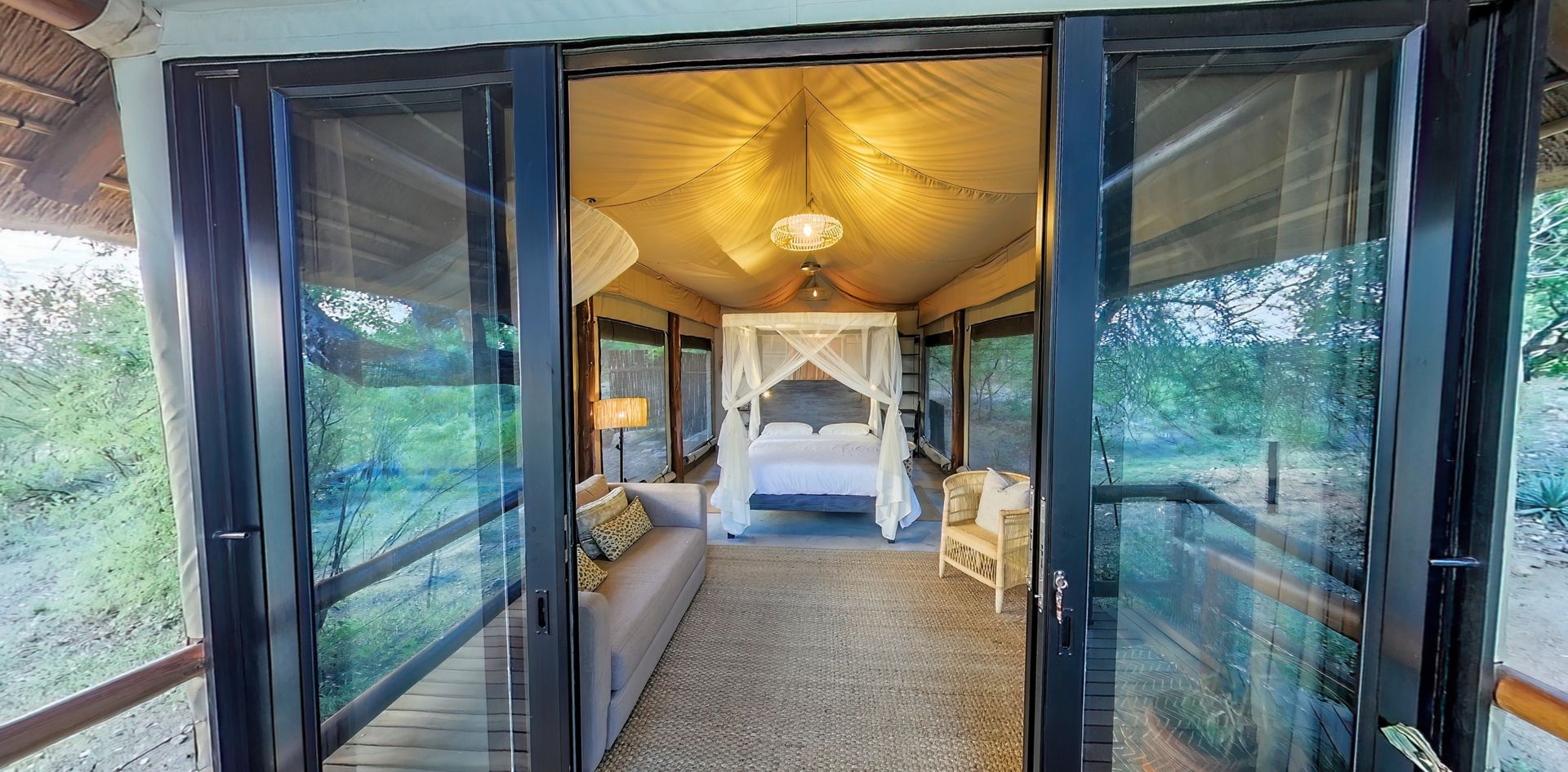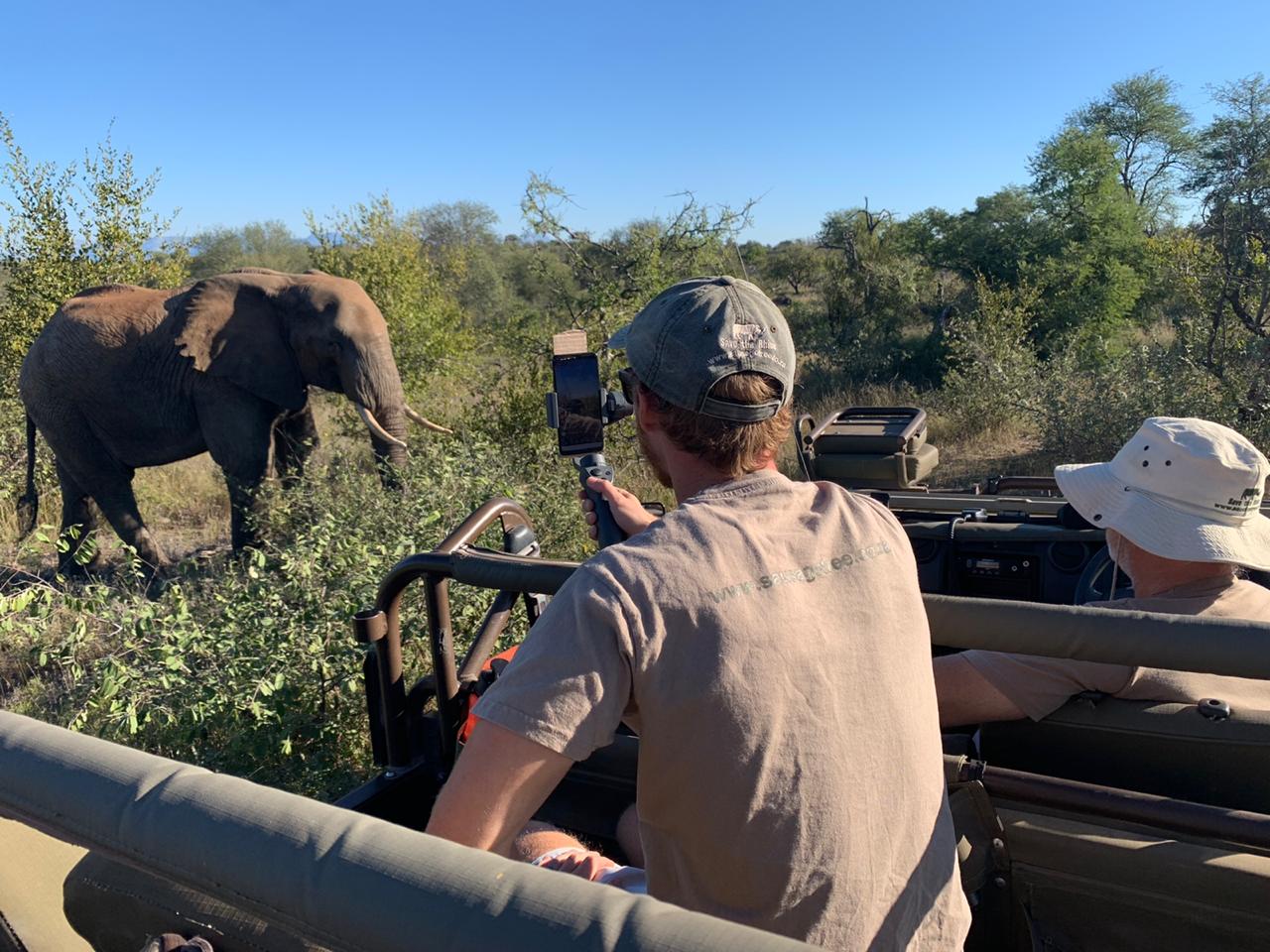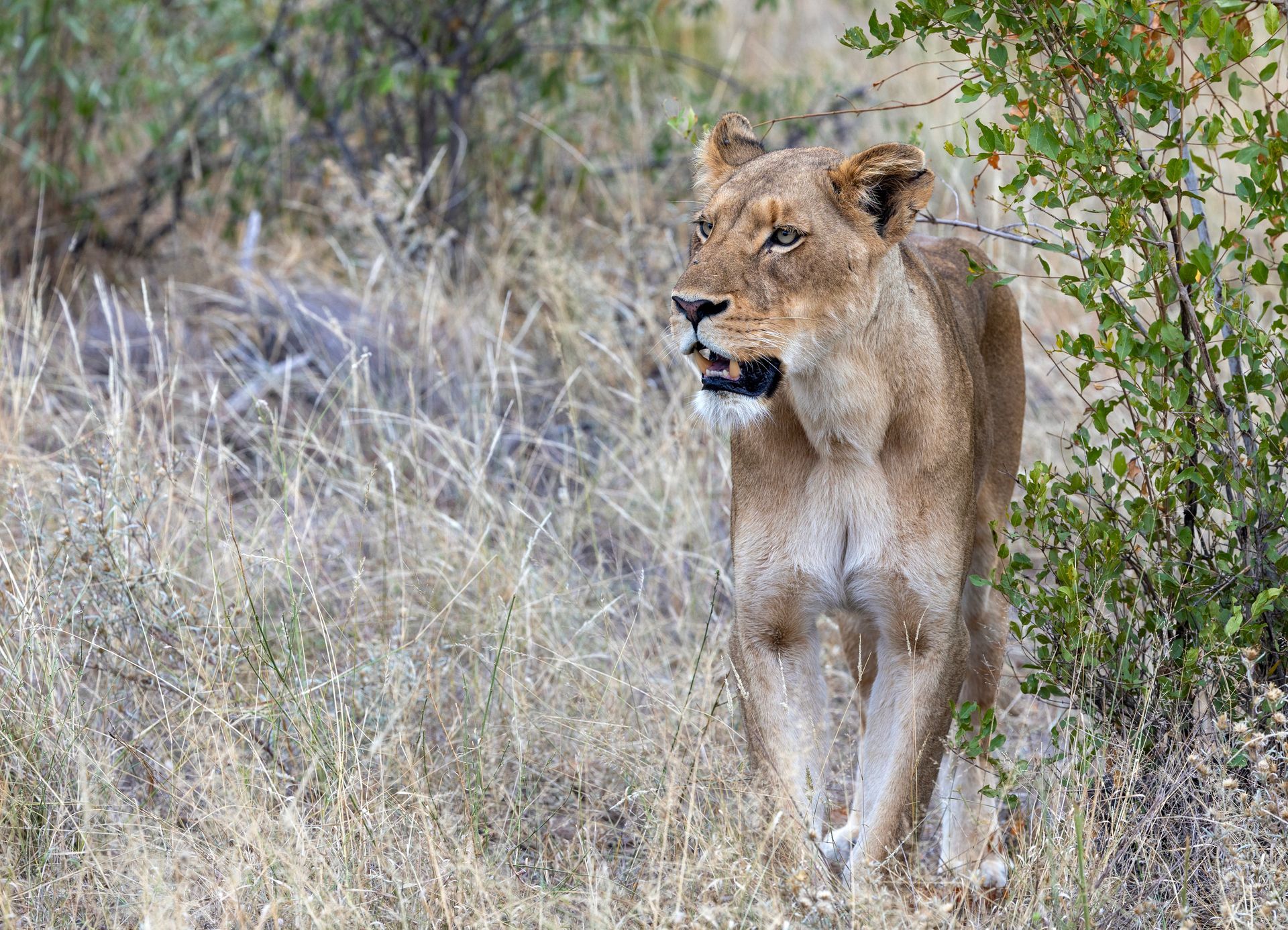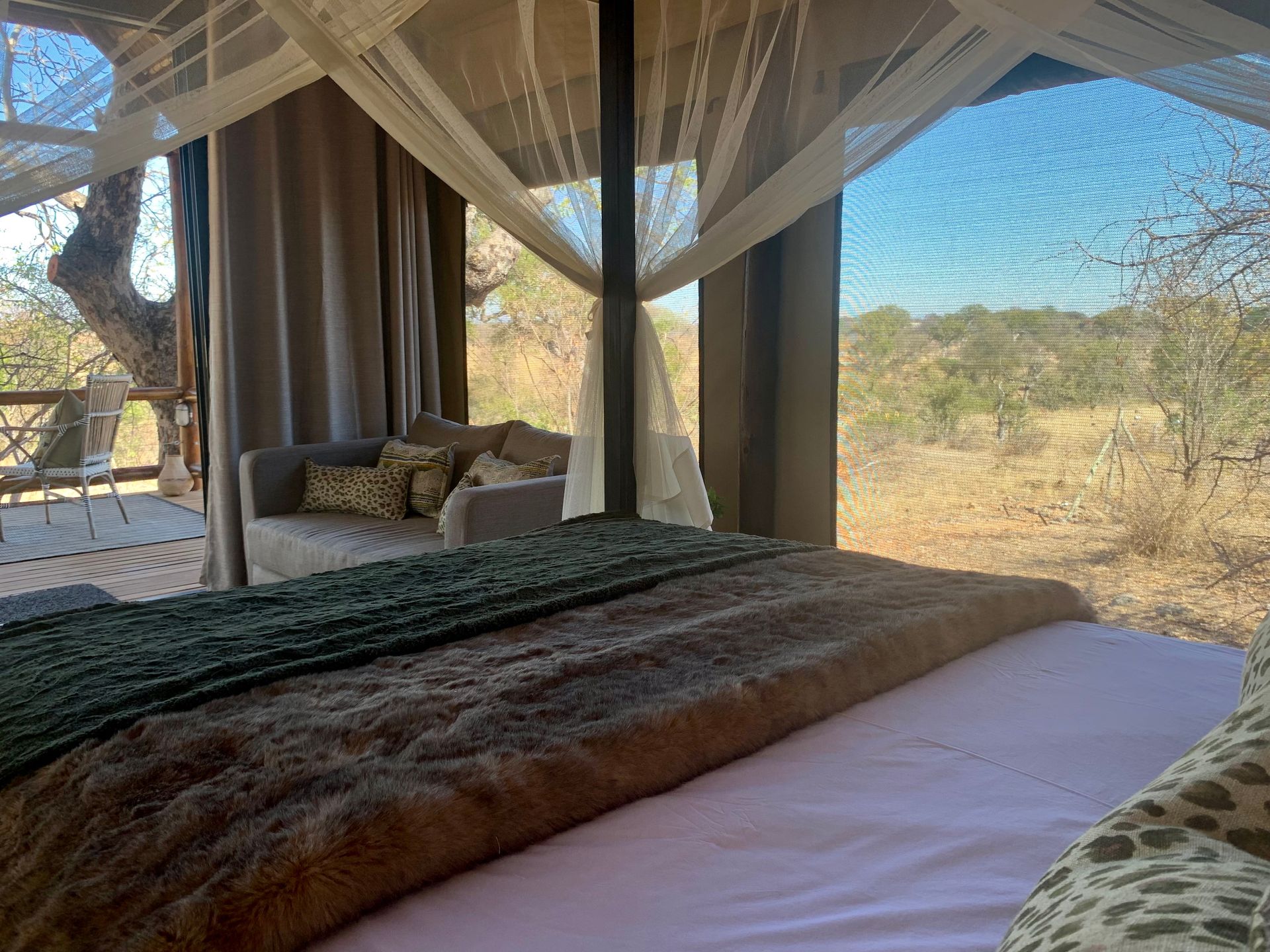Night Sounds of the African Bush: A Guide to After-Dark Calls
The bush never sleeps...
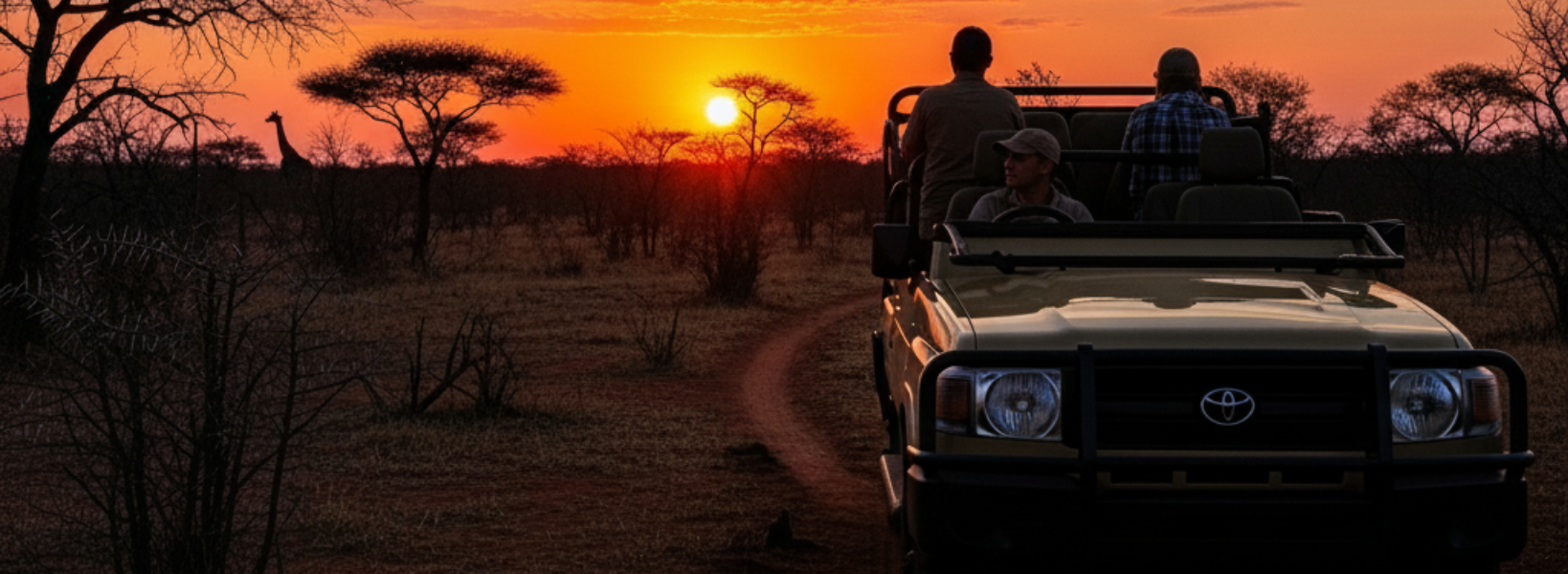
The sun has just dipped behind the Drakensberg, painting the sky in shades of amber and purple. You're settling onto your private deck with a nightcap when it begins – the ancient symphony of the African night. First, a distant rumble that seems to vibrate through your chest. Then, an eerie whoop-whoop echoing across the riverbed. Welcome to nature's most primal concert, performed nightly at Sausage Tree Safari Camp.
"The bush never sleeps," James often tells our guests around the evening fire. "It just changes the performers." And he's absolutely right. As darkness falls over Olifants West, a whole new cast of characters takes center stage, each with their own distinctive voice in this wild orchestra.
The King's Roar: Understanding Lion Calls
That bone-deep rumble that stops conversations mid-sentence? That's the undisputed headliner of our night show. A lion's roar can travel up to 8 kilometers, and when you hear it from your tent at Sausage Tree, it feels impossibly close (don't worry, you're perfectly safe in our elevated tents and predator fencing!).
"Lions roar for many reasons," explains Themba during a morning drive. "Territory marking, calling the pride together, or sometimes just because they can." Male lions typically roar more frequently, especially during mating season. The sound starts with a few low moans, building to full-throated roars before trailing off into grunts.
Pro tip from our guests' experiences: If you hear lions roaring during the night, mention it to your guide at morning coffee. They can often track the direction and may lead you straight to the pride on your dawn drive!
The Laughing Gang: Hyena Conversations
No sound in the African night is more misunderstood than the hyena's call. That famous "laugh"? It's actually a sign of excitement or nervousness, often heard when clan members compete over food. But hyenas have a whole vocabulary:
- The "whoop" – A long-distance contact call that sounds almost questioning: "Whoo-UP?"
- Groans and soft giggles – Used during social interactions
- The famous cackle – High excitement or stress
- Deep growls – Aggression or warning
"People think hyenas are just scavengers," Life tells us, "but they're incredible hunters. When you hear that excited cackling at night, they might have just brought down their own prey."
The River Chorus: Hippos After Dark
From our camp overlooking the Olifants River, the hippo ensemble is a nightly treat. These massive "river horses" might seem docile during the day, but come nightfall, they emerge to graze, filling the air with their distinctive calls.
The classic hippo laugh – a series of deep, rumbling "MUH-huh-huh-huh" sounds – often startles first-time visitors. "Sounds like a giant having a good chuckle," one guest perfectly described it. But hippos also grunt, bellow, and wheeze, especially when asserting dominance or during territorial disputes.
The Spotted Phantom: Leopard Sawing
Perhaps the most thrilling sound for safari enthusiasts is the leopard's call – a rough, sawing rasp that sounds like someone cutting wood with a blunt saw. "Ugh-ugh-ugh," repeated several times, often while the cat patrols its territory.
"When you hear a leopard calling near camp," Polite advises, "remember the location. These cats are territorial, and we might find it on tomorrow's drive." Female leopards also make a different call when in estrus – a repeated, almost dove-like "aoow-aoow" that can go on for hours.
The Miniature Musicians: Smaller Nocturnal Voices
Not all night sounds come from the big stars. The supporting cast creates the constant backdrop to bush nights:
Scops Owl: Its monotonous "prrrp... prrrp... prrrp" is like a metronome keeping time for the night orchestra.
Nightjars: These birds produce various calls, but the Fiery-necked Nightjar's "Good Lord, deliver us" (yes, that's what it sounds like!) is unmistakable.
Tree frogs: After rain, these tiny amphibians create an almost deafening chorus of clicks, whistles, and trills.
Fruit bats: High-pitched squeaks and the rustle of wings often signal their presence around fruiting trees.
Bush babies: Their name comes from their infant-like cries – haunting wails that can make your hair stand on end if you don't know the source!
The Trumpet Section: Elephants in the Dark
Elephant communication at night is particularly special. Beyond their famous trumpet, elephants use infrasound – sounds below human hearing – to communicate over vast distances. What we can hear includes:
- Rumbles: Deep, rolling sounds used for close communication
- Trumpets: Excitement, alarm, or aggression
- Ear flapping: Creates a distinctive sound, often indicating mild irritation
- Stomach rumbles: Yes, you can actually hear their digestive system at work!
"Sometimes you'll wake to what sounds like a thunderstorm," Sonja shares. "Then you realize it's just elephants at the waterhole, their stomachs rumbling as they drink."
Reading the Night Symphony
Experienced guides can "read" the night sounds like a news bulletin. A sudden silence often means a predator is moving through. Alarm calls from birds or antelope create a trackable path of disturbance. The excited yips of jackals might indicate a kill nearby.
"The bush telegraph is always working," James explains. "When you learn to listen, you know exactly what's happening out there."
Creating Your Own Night Sound Safari
During your stay at Sausage Tree, we encourage you to create your own night sound diary. Keep notes of what you hear and when. Our guides love helping guests identify mystery sounds over morning coffee. Some tips for your nocturnal listening:
- Step onto your deck: Sounds travel better in the cool night air
- Be patient: Wait 10 minutes for your ears to adjust
- Note the time: Different species are active at different hours
- Direction matters: Sounds from the river versus the bush tell different stories
- Embrace the silence: The quiet moments make the calls more dramatic
When the Night Comes Alive
There's something profoundly moving about lying in your tent at Sausage Tree, separated from the wild by just canvas and gauze. As you drift off to sleep, the night sounds become a lullaby – primal, authentic, and absolutely unforgettable. You're not just observing nature; you're part of it, wrapped in the same darkness that has sheltered these creatures for millennia.
Our guests often tell us that the night sounds become their most vivid safari memory. Long after they've returned home, they find themselves lying awake, missing that wild symphony. Some even play recordings to recapture the magic, though nothing quite compares to the real thing.
So tonight, when you hear that first distant roar or the splash of a hippo returning to water, don't just listen – immerse yourself. Let the sounds of the African night remind you why you traveled all this way. Out here, in our corner of the Greater Kruger, you're experiencing the same soundtrack our ancestors heard thousands of years ago.
Sweet dreams are made of this – the wild lullabies of Olifants West, performed nightly, exclusively for our guests at Sausage Tree Safari Camp.
